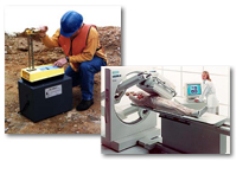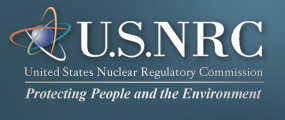
Medical, Industrial, & Academic Uses of Nuclear Materials
Medical Use Licensing (Part 35) and Toolkit
Enforcement Actions
Regulatory Initiatives
General License Registration and Tracking
Rulemaking Dockets
Licensee Toolkits
See our toolkit index page
What We Regulate
NRC and the Agreement States regulate the following activities associated with medical, industrial, and academic uses of nuclear materials. The Agreement States administer about 75 percent of licensees while NRC administers the remainder of the licensees.
- Sealed Sources and Devices - NRC and the Agreement States perform safety evaluations of the ability of sealed sources and devices to safely contain radioactivity under the conditions of their possession and use. These evaluations are summarized in registrations that NRC maintains in the National Sealed Source and Device Registry.
- Product Manufacturing and Distribution - issuance of licenses authorizing commercial distribution of products containing radioactive materials to other licensees and members of the public.
- Medical Uses - use of nuclear materials to monitor, image, or treat metabolic processes or tissues in humans.
- Veterinary Uses - use of nuclear materials to treat animals
- Industrial Uses - the use of nuclear materials in industrial devices such as, irradiators, gauging devices, well-logging devices, and industrial radiography systems.
- Academic and Research Uses - use of nuclear materials in universities, colleges, and other academic institutions for course work, laboratory demonstrations, and research.
- General License Uses - commercial use of nuclear materials by general licensees for activities such as measuring, gauging, or controlling devices, etc.
- Exempt Consumer Product Uses - products containing radioactive materials whose use is exempt from regulation and that are available in the marketplace to the public.
How We Regulate
NRC regulates medical, industrial, and academic uses of nuclear materials through a combination of regulatory requirements; licensing; safety oversight, including inspection and enforcement; operational experience evaluation; and regulatory support activities. For information on the first three components that applies generally to medical, industrial, and academic uses, see:
See the How We Regulate page for general information on these activities. Specific information is provided in the licensee toolkits for each regulated activity.

